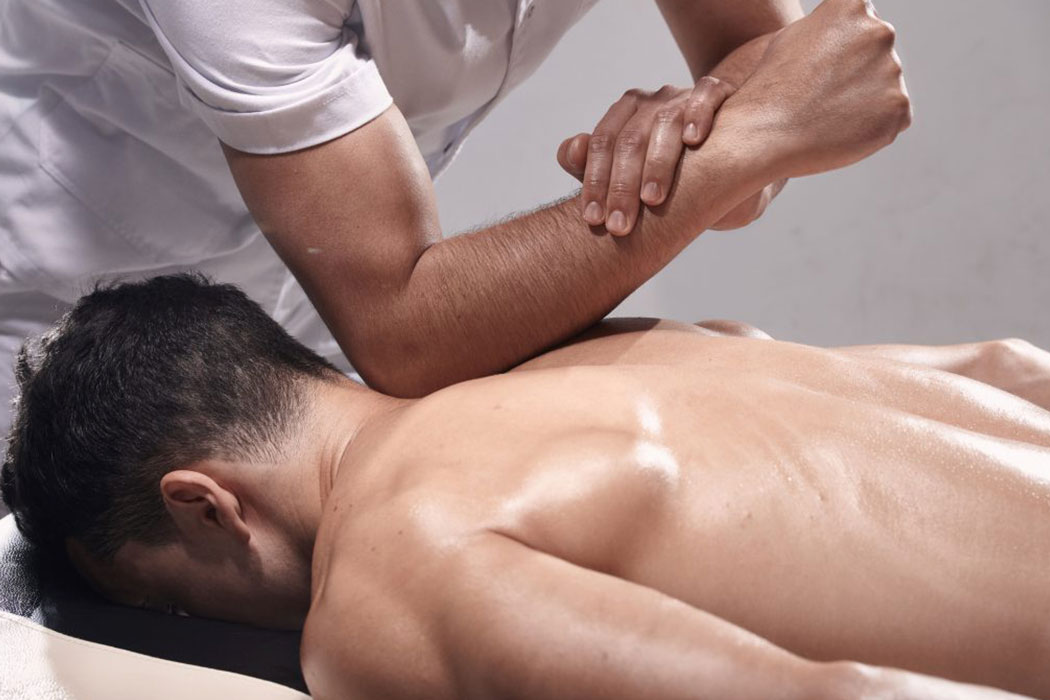What Is Deep Tissue Massage Therapy?

Conventional massage techniques promote whole-body relaxation. Deep tissue massage, on the other hand, targets specific problem spots. It is commonly applied if a patient suffers from persistent stiffness and soreness after an accident or injury (e.g. whiplash or falls).
However, like any other type of massage, this massage reduces stress hormone levels and heart rate. It also triggers the release of your “feel good” neurotransmitters (dopamine, serotonin, endorphins, and oxytocin) which boosts your mood and relaxes your body.
However, like any other type of massage, this massage reduces stress hormone levels and heart rate. It also triggers the release of your “feel good” neurotransmitters (dopamine, serotonin, endorphins, and oxytocin) which boosts your mood and relaxes your body.
For Safe And Effective Physical Therapies and Treatments
CALL US AT (813) 392-2164
Benefits of Deep tissue massage
This massage is used to alleviate tension on a variety of physical ailments such as:
SCHEDULE AN APPOINTMENT- Chronic pain
- Upper back or neck pain
- Low back pain
- Osteoarthritis
- Fibromyalgia
- Injured muscles
- Limited mobility
- Postural problems
- Sciatica
- Tennis elbow
- Piriformis syndrome

How does Deep Tissue Massage Therapy Works?
WHAT TO EXPECT?
Before the procedure, a certified massage therapist will evaluate the client's condition. They will discuss where the pain is, how it's impacting the client's life and what the client wants to achieve from the therapy. A customized program will then be created based on the evaluation.
This techniques are used to break down muscle adhesions that can build up after an accident or a chronic illness. The massage requires intense, controlled pressure and friction to be applied to the afflicted area. By following the grain of the muscle, deep tissue massage loosens stiff tissues and relieves the pain that comes with it.
At the beginning of this kind of massage, lighter pressure is applied to warm up the muscles. The pressure gradually intensifies depending on the severity of the ailment and the pain capacity of the patient. Common techniques used include:
This techniques are used to break down muscle adhesions that can build up after an accident or a chronic illness. The massage requires intense, controlled pressure and friction to be applied to the afflicted area. By following the grain of the muscle, deep tissue massage loosens stiff tissues and relieves the pain that comes with it.
At the beginning of this kind of massage, lighter pressure is applied to warm up the muscles. The pressure gradually intensifies depending on the severity of the ailment and the pain capacity of the patient. Common techniques used include:
Stripping: The massage therapist will apply a deep, gliding pressure along the length of the muscle fibers.
Friction: Pressure will be applied across the grain of a muscle.
During a session of this massage, the therapists may use fingertips, knuckles, hands, elbows, and forearms. You'll be asked to take deep breaths from time to time as the massage therapist works on tense areas. You can always inform your massage therapist if you feel any discomfort during the procedure. The therapist can adjust the level of pressure being applied or further prep your muscles if they are too tense.
There may be some stiffness or soreness felt after a deep tissue massage, but it will pass within a day or so. You can contact your massage therapist if the pain persists. You will also be encouraged to drink lots of water to flush the metabolic waste from the tissues.
There may be some stiffness or soreness felt after a deep tissue massage, but it will pass within a day or so. You can contact your massage therapist if the pain persists. You will also be encouraged to drink lots of water to flush the metabolic waste from the tissues.
PRECAUTIONS
Before getting this massage, always consult with your doctors first, especially if you have the following conditions:
If you are prone to blood clots
There's a possibility that this type of massage can dislodge a blood clot and put other parts of your body at risk.
If you've undergone surgery
Chemotherapy, radiation recently, or if you have any other medical condition.
If you have osteoporosis
Inform your Therapist first.
Bruises and inflammations
If the massage will be applied to areas with bruises, inflammations, rashes, open wounds, tumors, fragile bones, abdominal hernia.
Certain Conditions
If you have certain conditions like ankylosing spondylitis, as you may not be able to endure the pain of a deep tissue massage
Pregnant
If you are pregnant. Any type of strong pressure is not suitable during pregnancy.

